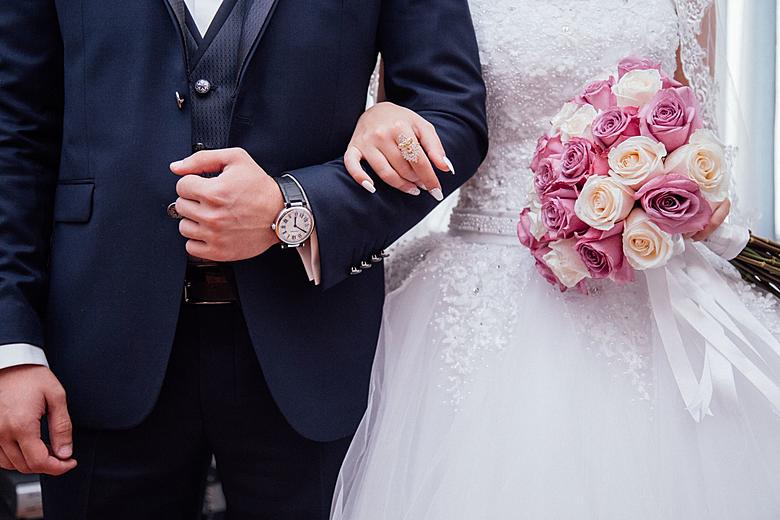Massachusetts is renowned for its rich history, vibrant cities like Boston, Springfield, and Worcester, and its progressive approach to many social issues. When it comes to the question, “Is it illegal to marry your cousin in Massachusetts in 2025?” many are surprised by the reality.
This blog will thoroughly explore cousin marriage laws in Massachusetts, discuss the legal landscape across New England and the United States, and consider the science, history, and societal views surrounding cousin marriage. This comprehensive guide will answer the questions you didn’t know you had, using real statistics, local references, and expert legal context
Understanding Massachusetts Marriage Laws
Massachusetts operates under a relatively permissive approach when it comes to cousin marriage. Yes, it is completely legal to marry your first cousin in Massachusetts as of 2025. The state does not impose restrictions, waiting periods, or special requirements for cousin marriages, making it one of the more liberal states in this regard.
The legal framework governing marriage in Massachusetts is outlined in Chapter 207 of the Massachusetts General Laws. This legislation specifically prohibits certain familial relationships from marrying but notably excludes cousins from these restrictions. The law focuses primarily on preventing marriages between immediate family members and certain step-relationships while allowing greater flexibility for more distant relatives.
What Relationships Are Prohibited in Massachusetts
While cousin marriage remains legal, Massachusetts does maintain strict prohibitions against marriages between closer relatives. Under Massachusetts General Law Chapter 207, Sections 1 and 2, the following relationships are explicitly prohibited from marrying:
For men, marriage is prohibited with:
-
Mother or grandmother
-
Daughter or granddaughter
-
Sister or stepsister
-
Stepmother
-
Grandfather’s wife
-
Grandson’s wife
-
Wife’s mother or grandmother
-
Wife’s daughter or granddaughter
-
Brother’s daughter or sister’s daughter
-
Father’s sister or mother’s sister
For women, marriage is prohibited with:
-
Father or grandfather
-
Son or grandson
-
Brother or stepbrother
-
Stepfather
-
Grandmother’s husband
-
Daughter’s husband or granddaughter’s husband
-
Husband’s grandfather, son, or grandson
-
Brother’s son
-
Father’s brother or mother’s brother
Notably absent from these lists are cousins of any degree, half-cousins, or adopted cousins, making their marriages legally permissible throughout Massachusetts.
The National Landscape of Cousin Marriage Laws
To understand Massachusetts’ position, it’s helpful to examine the broader national context. Across the United States, cousin marriage laws create a complex patchwork of regulations that vary significantly by state.
States where first cousin marriage is completely legal include:
-
Alabama
-
California
-
Colorado
-
Connecticut
-
Florida
-
Georgia
-
Maryland
-
Massachusetts
-
New Jersey
-
New York
-
New Mexico
-
North Carolina
-
Rhode Island
-
South Carolina
-
Vermont
-
Virginia
States with conditional allowances typically require:
-
Advanced age of both parties (usually 65 or older)
-
Proof of infertility
-
Genetic counseling
-
Court approval
States where cousin marriage is completely prohibited:
Twenty-four states maintain complete bans on first cousin marriage, with some imposing criminal penalties for violations.
This variation reflects different cultural attitudes, religious influences, and scientific understanding of genetic risks across different regions of the country.
Obtaining a Marriage License as Cousins in Massachusetts
If you’re planning to marry your cousin in Massachusetts, the process is much the same as for any other couple.
Where to Apply
Marriage licenses are issued at the city or town clerk’s office. Whether you’re in Boston, Worcester, Lowell, Newton, or any smaller town, you’ll follow the same legal steps.
What To Bring
Applicants need to provide:
-
Proof of identity and age (usually a passport or birth certificate)
-
Social Security numbers (if applicable)
-
Payment for the license fee
Both parties must appear together to file the application, and the license is typically issued three days later.
Residency and Ceremony
You don’t have to be a Massachusetts resident to marry here—so couples from states where cousin marriage is banned sometimes travel to Massachusetts for their wedding.
After the license is issued, it’s valid for 60 days. A ceremony performed by a recognized officiant (judge, justice of the peace, priest, etc.) is needed for the marriage to be legally recognized.
Penalties For Violating Related Marriage Laws
It’s important to draw distinctions. While cousin marriage is legal, marriages between closer relatives—such as siblings or direct ancestors—are illegal and void in Massachusetts. Attempting such a marriage can lead to criminal penalties and automatic annulment.
For cousin marriages, if all requirements are met, no penalties or legal consequences follow.
Real-Life Stories: Cousin Marriages in Massachusetts
Stories of cousin marriages are rarely publicized due to privacy concerns and lingering taboo, but there are notable examples.
A couple in Cambridge, originally from Turkey, chose to wed after years of family tradition and support, integrating their ceremony into a local community center celebration. In Springfield, a pair whose families immigrated from Lebanon explained that cousin marriage connected extended family ties. In multicultural cities like Lynn and Everett, similar stories play out quietly, often within close-knit communities.
These anecdotes highlight how cousin marriages, while rare, are not without precedent or community support in parts of Massachusetts.
Possible Changes to Cousin Marriage Laws in Massachusetts
As of 2025, there are no significant legislative efforts underway to change the status of cousin marriage in Massachusetts. Bills to alter marriage laws do surface from time to time—especially related to minimum age, consent, or same-sex unions—but cousin marriage has not been the focus of recent political activity.
If public health campaigns or shifting social attitudes prompt legislative changes in the future, any revisions would be subject to the same open debate and legal process that characterizes lawmaking in the Commonwealth.
Common Questions About Cousin Marriage in Massachusetts
Is it legal to marry your cousin in Boston, Worcester, or Springfield?
Yes, first cousin marriage is legal throughout Massachusetts, including all cities and towns.
Are there any requirements or restrictions?
Massachusetts imposes no special restrictions on cousin marriage beyond the normal process for any other marriage. Both parties must be consenting adults and meet the age and procedural requirements for a marriage license.
What about adopted cousins or half-cousins?
The law makes no distinction for half-cousins or cousins by adoption, meaning they are also free to marry.
Is genetic counseling required?
In Massachusetts, genetic counseling is not required for cousin marriages, though it is available and may be advisable for couples concerned about potential risks to their children.
Will my cousin marriage in Massachusetts be recognized elsewhere?
If you move to a state that prohibits cousin marriages, your marriage might not be recognized for certain legal purposes, though this does not retroactively make the union illegal.
Conclusion
Massachusetts maintains a clear and consistent position regarding cousin marriage: it is completely legal and faces no additional restrictions beyond those applied to all marriages. This stance reflects the state’s broader commitment to individual rights, evidence-based policy making, and inclusive family recognition.
The legal framework in Massachusetts, established through generations of legislative and judicial decisions, provides certainty for couples while maintaining appropriate protections against harmful relationships. As the state continues to evolve socially and culturally, its approach to cousin marriage appears likely to remain stable, supported by both legal precedent and contemporary values.
For couples considering cousin marriage in Massachusetts, the legal path is clear and straightforward. While personal, cultural, and medical considerations remain important factors in any marriage decision, the law itself presents no barriers to cousins who choose to marry in the Bay State. This legal clarity, combined with Massachusetts’ strong support systems for families and couples, continues to make the state a welcoming environment for diverse family arrangements in 2025 and beyond.




